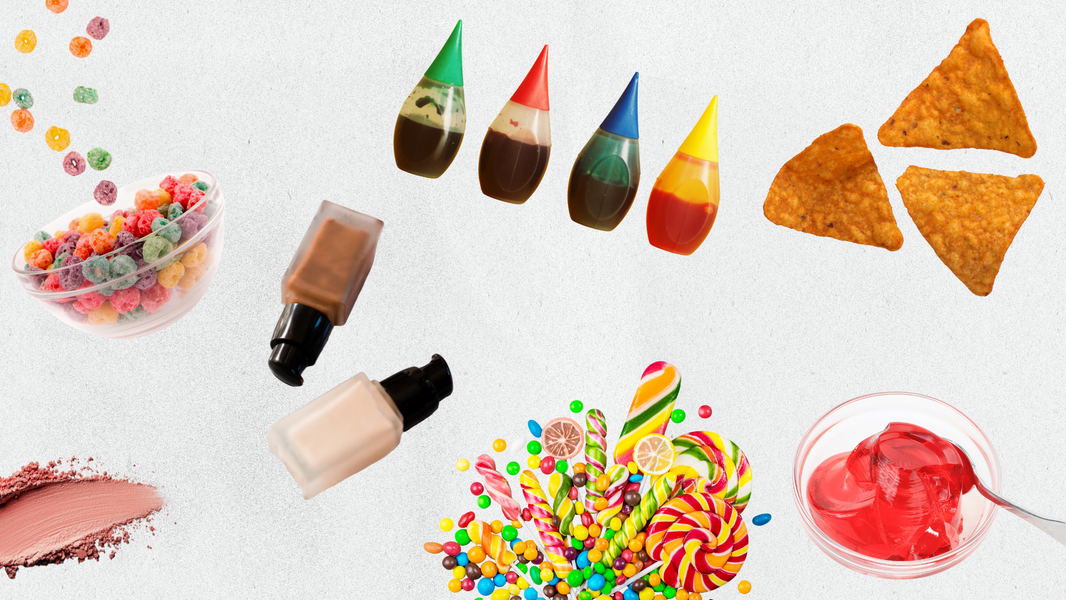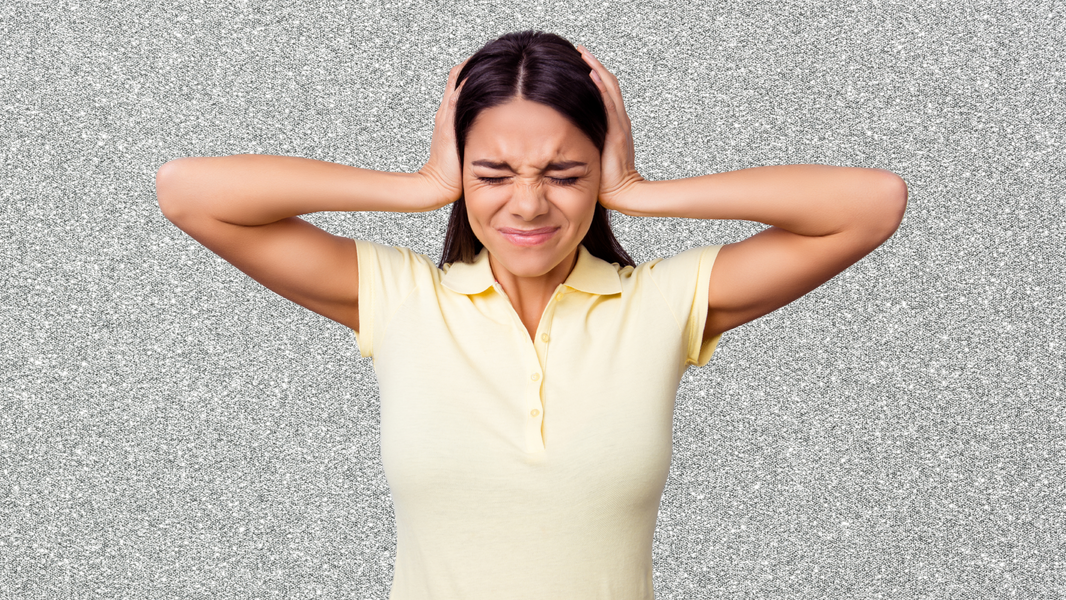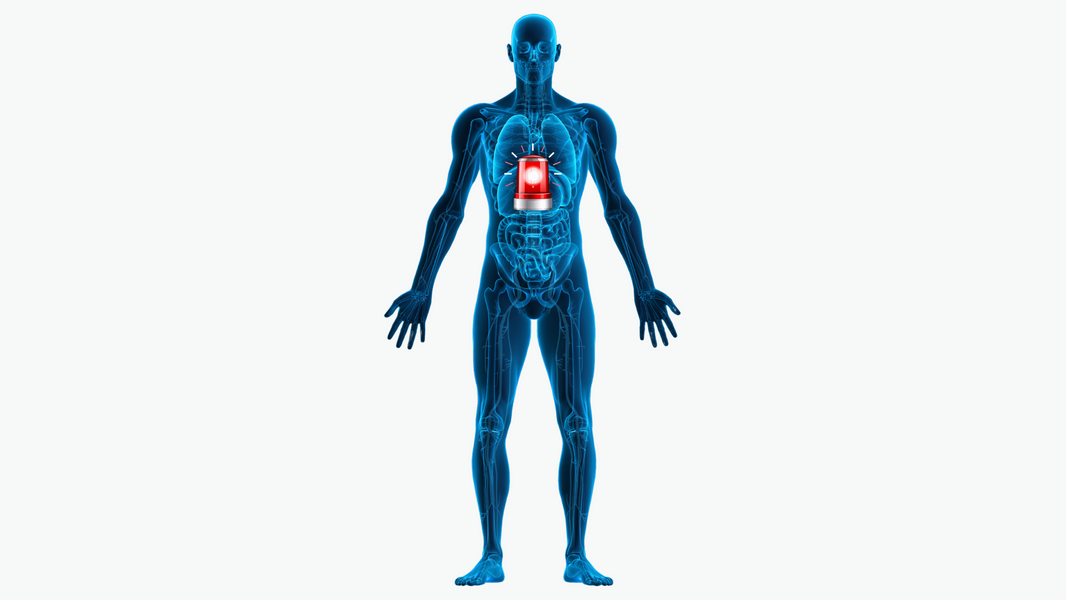Bloating takes different forms for different people. We’ve all felt some version of it. Raise your hand if you’ve never felt gassy, over-full, or digestive discomfort.
Anyone? We didn’t think so!
Bloating is one of the most commonly reported digestive symptoms. At least 1 in 5 people will experience it at some point. If you have a digestive disorder like Irritable Bowel Syndrome, there’s nearly 100% chance that you’ll experience bloating.
This high incidence is partly because bloating is more of a family of symptoms than a single culprit. Some people don’t call it bloating until they see their stomach is visibly “bloated.” Others report bloating as discomfort from gas or “pressure-like” abdominal pain.
For our purposes, we’re taking everyone at their word. Because that’s the thing about bloating, it’s often more of a “feeling” than a specific symptom. And our medical system isn’t the greatest at dealing with feelings, so bloating often doesn’t get the attention it deserves.
In this discussion, we’re going to explore three questions:
- Could gut bacteria be the cause (or cure) for bloating?
- Strategies to address bloating symptoms.
- Betr’s bloating battle plan!
Bacteria and Bloating
Gut bacteria are like the oil in the engine of your gut. If you have high-quality oil, the engine runs clean and smooth. If you have the wrong oil, the engine will produce strange byproducts, weird smells, and maybe some funny noise.
When your gut bacteria is out of balance or unhealthy, it’s like having bad oil in your engine. Studies of IBS patients’ gut microbiomes showed consisten changes in IBS patients’ guts. Researchers found different species, amounts of bacteria, and even bacteria in the wrong locations within the digestive tract.
Why does that matter?
When the gut microbiome is healthy, it produces numerous anti-inflammatory, essential substances that support normal functioning. When it isn’t, the microbiome makes the opposite kinds of substances. These inflammatory metabolites cause further damage to your gut health, leading to digestive issues, skin disorders, and chronic disease.
For researchers, there’s a “chicken or the egg” debate about this process: Are gut bacteria changes a symptom or a cause of diseases like IBS?
And the answer is: we’re not sure.
There are also competing theories on what causes bloat. They include everything from food sensitivities to “hyper-vigilance”( basically that people who report bloat are just more “sensitive” to their symptoms).
In short, there’s lots of research but limited consensus.
Takeaway
Bloating is a common symptom, especially among IBS patients. Scientists have found that IBS patients do have unhealthy changes in their microbiome, but still aren’t sure if these changes cause, or are caused by IBS.
Battling the Bloat: Strategies for Settling Symptoms
We’re going to focus on the hypothesis that our gut bacteria has something to do with bloating. There are 100 trillion individual bacterial cells in your gut, and they come from 1000 species. Because of its sheer size, problems with your microbiome will be noticeable. These problems can include chronic inflammation, skin disorders, metabolic disease, and bloating.
How do you heal a hundred trillion cells, though?
There’s plenty of research overcoming bloating can be done by approaching the problem directly…by healing the gut!
Diet
Our culture’s idea of food is toxic. We pack our food with unhealthy levels of salt, fat, and unstudied additives that virtually addict us and cause cravings. Don’t even get us started on environmental toxins, skincare and toothpaste additives, or pesticides!
All these toxins cause inflammation, and inflammation interferes with our gut microbiome doing its job— keeping us healthy by breaking down food into the essential nutrients we need to live.
To fight against inflammation, we need to feed our gut bacteria fuel that keeps them firing on all cylinders! The one thing our gut bacteria need (and the “Western Diet” doesn’t give them) is fiber. Gut bacteria need dietary fiber to ferment into short-chain fatty acids, which are healthy metabolites that promote healthy hormone production and fight inflammation inside and out of the gut.
When we don’t get the fiber we need, the healthy species of bacteria can’t thrive, which leads to a shift toward unhealthy bacterial species.
It’s worth saying that there’s some debate on fiber’s relationship to bloating. In patients with severe IBS, fiber often causes bloating, abdominal pain, and flares of other symptoms. But, is fiber causing these symptoms? Or are the symptoms occurring because an unhealthy microbiome can’t thrive on fiber?
If the symptoms are because of an unhealthy microbiome, how do we get healthy bacteria back into our gut?
Probiotics
Probiotic are whole foods or supplements that contain beneficial bacteria, usually bifidobacterium and lactobacillus, that positively impact gut health. Both of these species of bacteria have been shown in multiple studies to improve digestive symptoms in IBS patients.
In addition to the studies on these specific species, probiotics have been extensively studies for their usefulness in treating digestive symptoms. While the jury is still out on effective dosages for specific symptoms, the research has shown that, in many cases, probiotics do benefit patients with digestive symptoms like bloating.
Takeaway
Healing the gut microbiome through a diet containing plenty of healthy fiber and the beneficial bacterial species in probiotics may provide a path to bloating relief!
The Betr Bloating Battleplan
At Betr Health, we’re constantly monitoring the science to ensure our program uses the most up-to-date, accurate information.
But, at the same time, we are helping thousands of Betr Health clients find their path to improved living through a gut-healthy diet that focuses on restoring the microbiome.
The cornerstone of our plan is using Food as Medicine, and the prescription is slightly different for everyone!
Our three-step protocol:
- Heals your gut microbiome through an anti-inflammatory, healthy diet of delicious, natural foods.
- Slowly reintroduces foods to your healed gut to determine which foods are troublesome to your specific microbiome.
- Helps you develop an individualized food lifestyle for ongoing health, happiness, and sustainability.
We’ve found that every individual’s dietary needs and food sensitivities are different. This makes sense, because everyone’s microbiome is unique!
Often, our members experience less bloating, fatigue, and pain just by changing the food they eat. If a member wants to “level up” their Betr experience, they can try our Daily Essentials blend of probiotics, prebiotics, multivitamins, and more to support their body as you rebuild a healthy microbiome!
Betr’s focus is on results! Our clients report reduced bloating, gas, and stomach discomfort.
They have more energy, an improved mood, and clearer skin!
Their physicians see improved lab work and a decrease in symptoms of chronic disease!
These are the results we see from our gut-healing, microbiome-boosting method.
Takeaway
Betr uses a research backed, gut-healthy approach to restore members’ microbiome, reduce inflammation, and heal an array of symptoms, including bloating!
Conclusion: The Buzz on Bloating
In this article, we’ve covered a lot of information.
Most importantly, remember that:
- Bloating is a common symptom, especially among IBS patients. Scientists have found that IBS patients do have unhealthy changes in their microbiome, but still aren’t sure if these changes cause, or are caused by IBS.
- Healing the gut microbiome through a diet containing plenty of healthy fiber and the beneficial bacterial species in probiotics may provide a path to bloating relief!
- Betr uses a research backed, gut-healthy approach to restore members’ microbiome, reduce inflammation, and heal an array of symptoms, including bloating!
If there’s one thing to take away, it’s that there’s still research that needs done regarding diet, probiotics, and their effects on your gut microbiome.
Can you afford to wait, though?
Betr has shown thousands of members the path to improved health, reduced bloating, and reduced digestive discomfort.
Give us three days. The results will speak for themselves.






